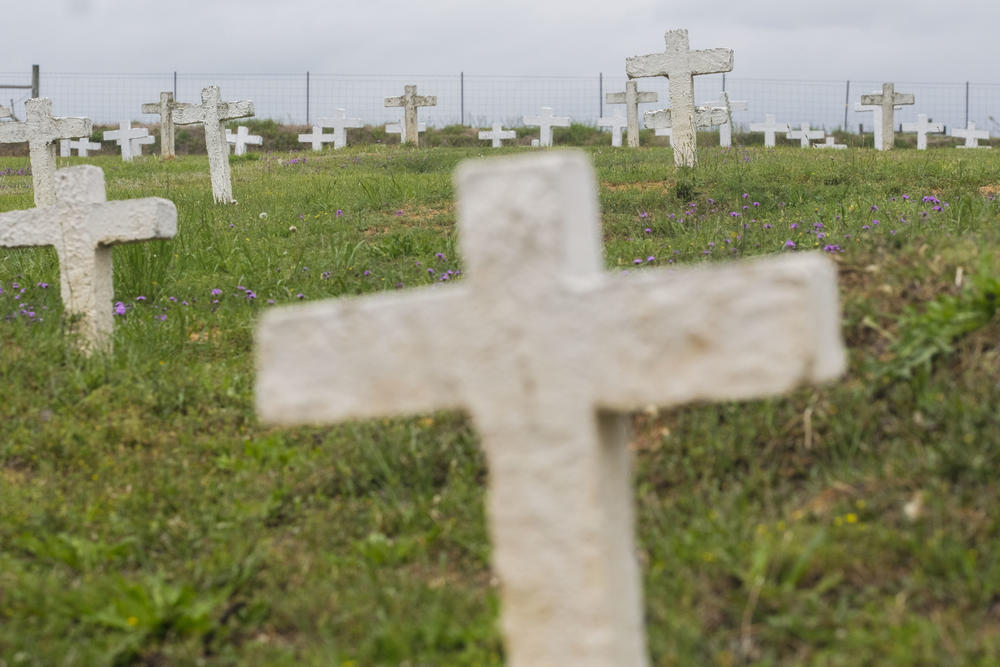
Caption
The Tattnall County cemetery where Georgia inmates whose bodies go unclaimed are buried, in 2022.
Credit: Grant Blankenship/GPB News
|Updated: April 25, 2024 12:09 PM
A federal judge has found Georgia prison officials in contempt of an agreement — one they chose to enter into of their own volition — to restore the constitutional rights of inmates held in the state’s most extreme solitary confinement unit.
The contempt order stems from a civil case, Gumm v. Jacobs, in which, as a class, the people incarcerated at Georgia’s Special Management Unit, or SMU, at Georgia Diagnostic Prison in Jackson sued the Georgia Department of Corrections claiming by denying minimal conditions of confinement such as outdoor exercise time, access to showers and books, GDC violated inmates’ constitutional rights.
Five years ago, GDC and plaintiffs agreed to terms to change those conditions.
But in his 100-page order, Chief U.S. District Judge for Georgia’s Middle District Marc Treadwell describes officials at the SMU as obstinately disobedient, making no real effort to affect change at all.
“It became clear to the Court that the defendants, in effect, were running a four-corner offense and had no desire or intention to comply,” reads one passage.
Broadly, the conditions for which inmates sought relief are the sometimes years spent in what an expert quoted in the contempt order described as "hermetically sealed" single-occupancy cells without the smallest windows.
“When I was a warden, I could see them, from the day that they arrive, to a year later — they decompensate,” retired SMU warden Jose Morales told GPB in a 2021 interview. “They're normal mentally, but then they start talking to themselves. They start to hallucinate. They start talking to their dead grandma — who has been dead 10 years — and they swear up and down that they are actually in the cell with them.”
That sort of mental unraveling is well-documented in people left in solitary confinement. Still, SMU officials could provide no documentation to the court of promised mental health screening or counseling to SMU inmates.

The Tattnall County cemetery where Georgia inmates whose bodies go unclaimed are buried, in 2022.
Another part of the 2019 agreement included a maximum of 24 months in the SMU for any single inmate and a restoration of exercise time in an outdoor pen with a view of the sky. According to the contempt order, extremely low staffing levels at the unit meant taking inmates to the outdoor pen was impossible. Only the temporary presence of specially equipped tactical officers periodically made it happen.
The court said slack staffing levels were no excuse for promises not kept. In a separate section, the order cites the lack of effort to comply or even document the noncompliance as an utter disregard for the process.
“It was evident to the Court that the defendants were figuratively thumbing their noses at the Court,” reads another passage.
As a penalty, the court and GDC will jointly appoint an independent monitor of the solitary unit in Jackson at GDC expense.
Further, after May 20, GDC will pay fines of $2,500 per day (or $75,000 a month) until it meets the terms it agreed to five years ago.
While there are only six months left in the court's original injunction, the contempt order does not preclude an extension.
Meanwhile, many still await the findings of a long-running federal Department of Justice investigation into civil rights abuses across the entire Georgia prison system.